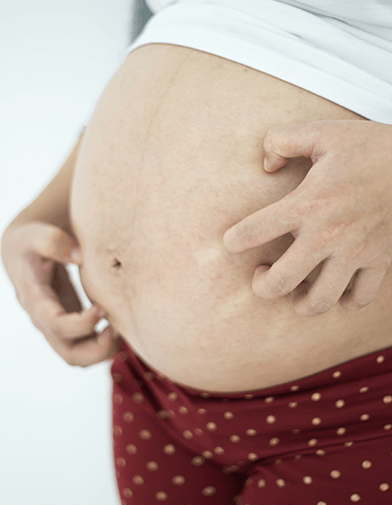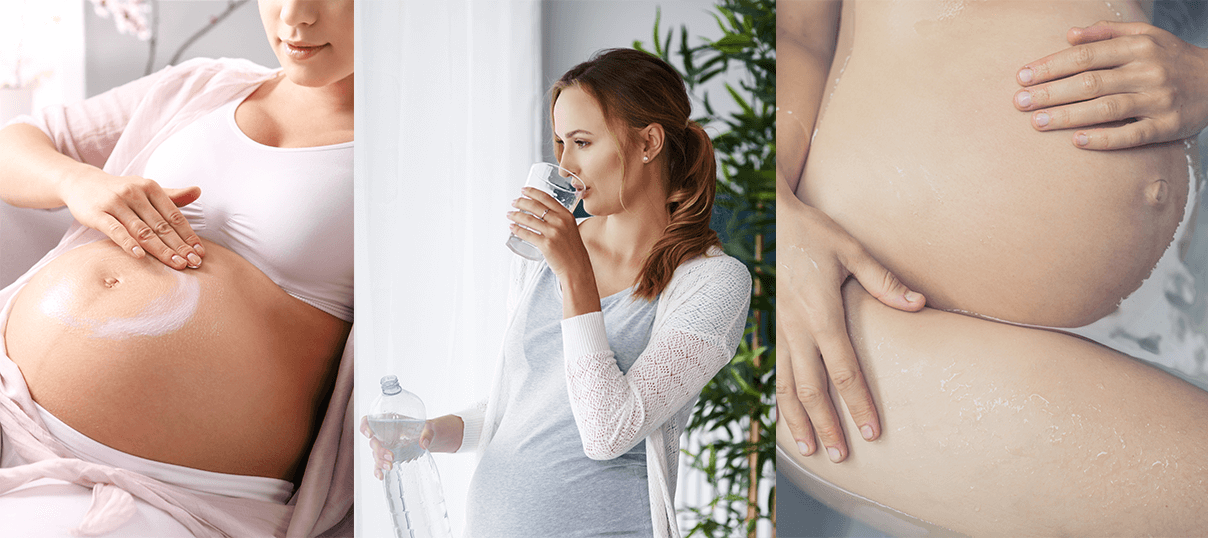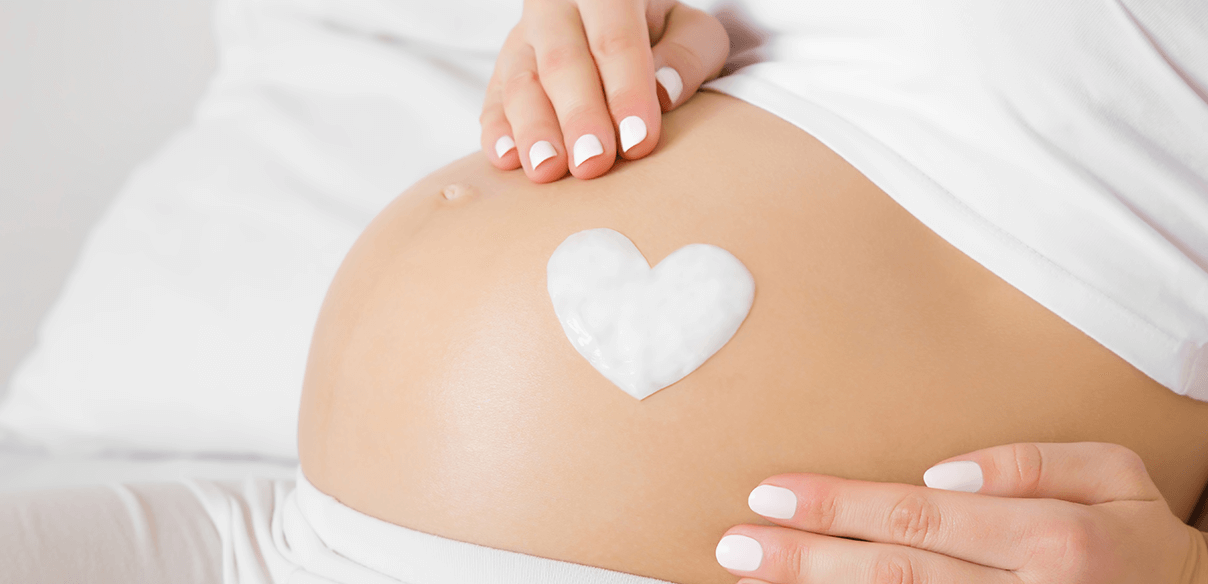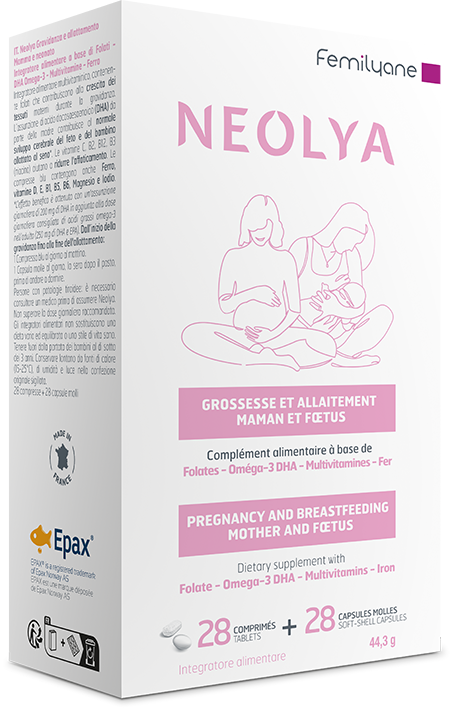Hormonal fluctuations, extreme stretching, disruptions in blood circulation…
Pregnancy is tough on the skin. As the latter is more fragile, it can become dry, irritated and itchy. Special care is then necessary: read our tips for keeping your skin soft and comfortable throughout your pregnancy!
Skincare during pregnancy
During pregnancy, the amount of female hormones present in your blood increases significantly. These hormones have different consequences on your skin’s balance:
- • Sweat production increases, leading to greater water loss. As it is more fragile and less resistant, the skin dehydrates more easily than usual.
- • As a result of this dehydration, it can also become uncomfortable and very itchy, particularly on the tummy and legs.
- • Blood volume increases and skin microcirculation slows down, making the skin more sensitive and irritable..
- • Lastly, in some women, hormone impregnation leads to localised hyperpigmentation that is generally temporary: brown patches can appear on the forehead, the cheekbones, and above the top lip. This is called a “pregnancy mask” or “chloasma”. Sometimes, a vertical brown line may also appear on the tummy. These types of hyperpigmentation most often occur in women with brown hair.

The right skincare habits to adopt during pregnancy
Although they can be unpleasant, know that the skin changes that occur during pregnancy are temporary: they nearly always disappear spontaneously in the months following delivery, once hormone levels have returned to normal.
During pregnancy, adopting a few good habits will keep your skin feeling comfortable:
- • Opt for warm or cool showers rather than hot baths: soaking in water for a prolonged period, particularly if the water is hot and hard, alters the hydrolipidic film that protects your skin from dehydration.
- • If in spite of this you wish to unwind in a bath – something that is very enjoyable in the late stages of pregnancy – remember to add a dose of skin-nourishing oil to the water and make sure the water is not too hot.
- • Choose your hygiene products carefully: steer well clear of overly harsh soaps and, instead, use an emollient-rich skin cleansing bar or a nourishing shower gel formulated for dry skin.
- • After washing, dry yourself carefully by patting your skin rather than rubbing it.
- • Moisturise every day and each time you wash your face and body, using a soothing and nourishing high-tolerance cream or lotion specially formulated for dry skin.
- • Always remove your make-up before going to bed and, if possible, use a nourishing make-up remover (oil or milk).
- • Drink at least 1.5 litres of water per day to keep your skin hydrated and maintain its elasticity.
- • Do not overheat your home in the wintertime. Let fresh air in daily and, if need be, use an air humidifier: the air in heated environments is extremely dry and harsh on skin that lacks hydration.
- • For your clothing and underwear, always opt for cotton rather than synthetic fabrics which irritate the skin.
- • To reduce the risk of a pregnancy mask or linea nigra (also known as a pregnancy line) appearing, avoid sun exposure or use a high-protection sunscreen (SPF 30 at least), wear a hat and remember to take a beach umbrella to the beach.
- • If in spite of your efforts a pregnancy mask or a line do appear during your pregnancy, know that they will most probably disappear in the months following the birth of your baby. Nevertheless, you should continue to protect yourself against the sun as much as possible: sun exposure is likely to cause this hyperpigmentation to reappear.
- • If your skin continues to feel uncomfortable, speak to your gynaecologist about it during your monthly check-up, or consult a skin specialist.





